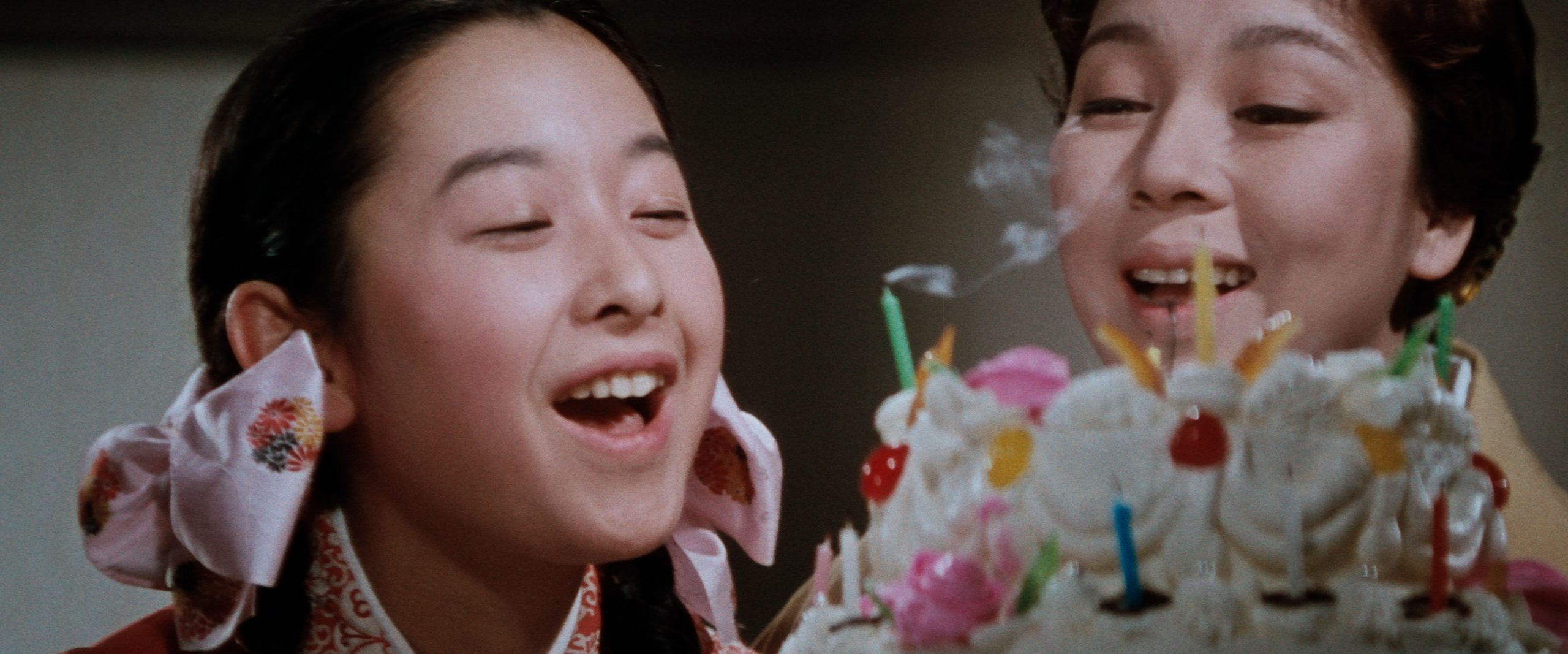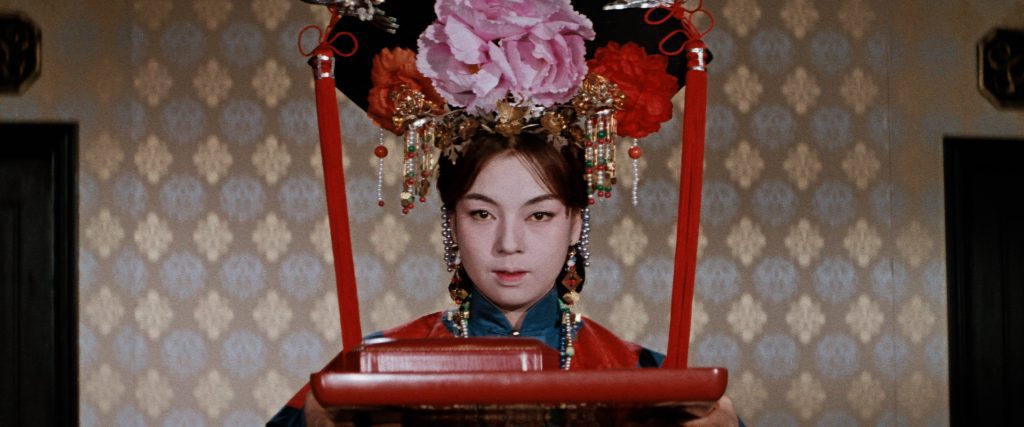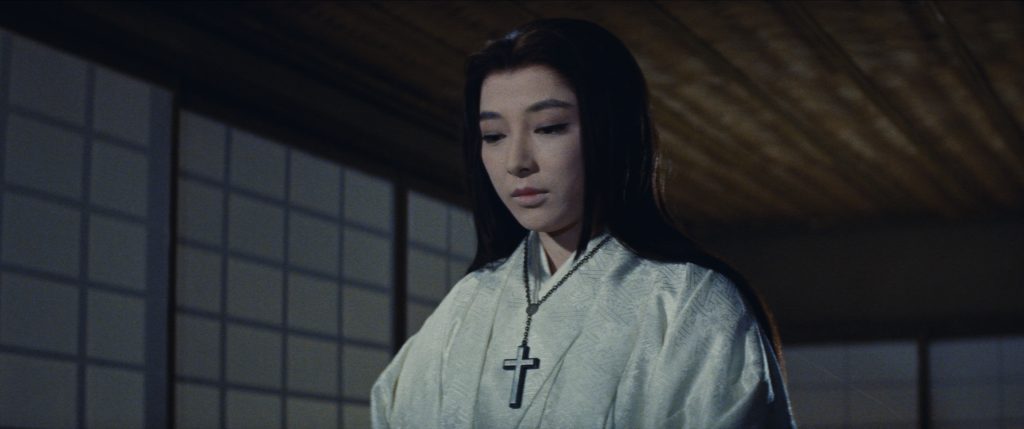
BFI Southbank, 1 – 30 August 2022
The BFI today announces the complete programme for a two-month season dedicated to KINUYO TANAKA, an actor and filmmaker who played an essential role in the history of Japanese cinema; KINUYO TANAKA: A LIFE IN FILM will take place at BFI Southbank from 1 August – 30 September.
In August, screenings will focus on Tanaka’s work as director and the six ground-breaking features she made as one of Japan’s earliest female auteurs, all presented in new 4K restorations. In September, the spotlight will shift to Tanaka as actor and her work with major directors including Yasujirō Ozu, Mikio Naruse and Kenji Mizoguchi. The season, which was first conceived by Lili Hinstin and presented at the Lumière Festival in 2021, is presented in partnership with the Edinburgh International Film Festival and Janus Films.
A season introduction, KINUYO TANAKA: FILM PIONEER, on 8 August will guide its audience through the film selection. The richly illustrated talk will explore how Tanaka came to be considered one of the greatest actors in the history of Japanese cinema, before she moved on to become a ground-breaking filmmaker with a focus on distinctly feminine topics.
The BFI Southbank season will begin in August with screenings of Tanaka’s directorial works, starting with her debut feature, LOVE LETTER (Kinuyo Tanaka, 1953). A success with audiences and critics alike, and based on a popular serialised novel, this is a heart-breaking drama that explores love and social dislocation in the aftermath of American Occupation.
This will be followed by THE MOON HAS RISEN (Kinuyo Tanaka, 1955), a bright ensemble comedy about love and family, from a script gifted by Tanaka’s friend and mentor Yasujirô Ozu; and FOREVER A WOMAN (aka THE ETERNAL BREASTS) (Kinuyo Tanaka, 1955), a moving portrait of mother and artist which illuminates radical ideas of female agency and desire.
The feature was Tanaka’s first passion project as director, inspired by the life of female poet Nakajō Fumiko who passed away from breast cancer aged just 32.
August continues with THE WANDERING PRINCESS (Kinuyo Tanaka, 1960), which saw Tanaka return from a five-year break with this historical melodrama. Based on the memoir of Saga Hiro, the film charts the aristocrat’s journey from adolescence to womanhood, revelling in her resolve when faced with political turmoil and personal heartbreak.

Then, as Japanese cinema of the 60s became more aligned with realism, Tanaka responded with GIRLS OF THE NIGHT (Kinuyo Tanaka, 1961), an unflinching but emotionally charged melodrama on the plight of sex workers forced into state reformatories.
The impressive ensemble piece shows a woman refusing to be cowed by society’s pressures, instead carving an unconventional path to freedom. Tanaka’s final directorial effort, LOVE UNDER THE CRUCIFIX (Kinuyo Tanaka, 1962), is a sharp examination of female desire and autonomy against all odds set in 16th century Japan. With grand set pieces, the lush period drama follows a tea-master’s daughter who accepts the hand of a wealthy merchant only for her love of a Christian samurai to remain unwavering.

The season continues in September by celebrating Kinuyo Tanaka, the actor. Six of her most notable roles will be screened at BFI Southbank, starting with SHUNKINSHO: OKOTO TO SASUKE (Yasujirō Shimazu, 1935). In a key early performance, which is deeply powerful yet delicately restrained, Tanaka plays a brilliant music teacher who begins a strange and devoted love affair with her disciple and servant. ARMY (Keisuke Kinoshita, 1944) is the story of a family who have sent their sons to the Imperial Army for three generations. Tanaka plays the mother of the next young man in line, and the complexity of her performance contributes to the film’s ambiguity in regards to militarism.
In A HEN IN THE WIND (Yasujirō Ozu, 1948), Tanaka is a devoted, near-destitute mother who turns to sex work when her son falls dangerously ill. Her performance centres the film and articulates the impossibility of the situation after her husband returns from war and cannot accept this new reality.
In one of fifteen collaborations with Kenji Mizoguchi, THE LIFE OHARU (Kenji Mizoguchi, 1952), Tanaka is the titular noblewoman who descends the social strata into sex work following the discovery of her love for a page. She is devastating as the resourceful heroine whose fate is sealed by others. Often cited as Japan’s greatest contribution to neo-realism, MOTHER (Mikio Naruse, 1952) is dense with social observation and sees Tanaka play a resilient matriarch trying to provide for her children after the death of her husband. The film’s poignancy is hard-earned and feels very real.
Finally, in BROTHEL NO. 8 (Mikio Naruse, 1952), Tanaka’s character reveals the painful reality of forgotten women in Japan’s history through her experience of “karayuki-san” – which saw impoverished girls and women sent abroad for sex work. Tanaka won Best Actress at the Berlin Film Festival, and the feature was nominated for the Academy Award for Best Foreign Language Film.
As well as screening at BFI Southbank, Kinuyo Tanaka’s six directorial features will also be screened in their new 4K restorations this summer at the Edinburgh International Film Festival (EIFF), Glasgow Film Theatre and Watershed, Bristol.




